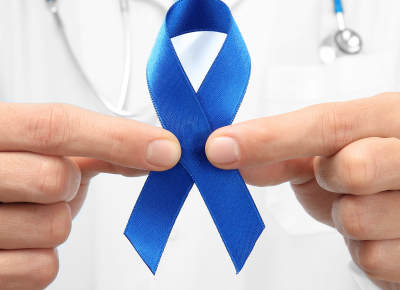Think you cannot get colorectal cancer? Think again. Colorectal cancer (cancer of the colon or rectum) is the third most common cancer in the US, and the second leading cause of cancer death. It affects men and women of all racial and ethnic groups. And, while most often found in people 50 years or older, colorectal cancer incidence in those younger than 50 is on the rise.
Colorectal cancer takes the lives of more than 50,000 people every year. However, this statistic can easily be changed. Colorectal cancer is very treatable when discovered early. At Ocean Family Gastroenterology, our providers are specially trained in the prevention and diagnosis of colorectal cancer.
Here are some things to keep in mind to stay healthy and to potentially catch this disease early.
Ask Yourself if You are Experiencing Any of the Following Symptoms
Colorectal cancer (cancer in the colon or rectum) first develops with few, if any, symptoms. Be proactive and talk to your doctor if you are experiencing any of the following.
Have your bowel habits changed?
Changes in bowel habits include intermittent or constant diarrhea and/or constipation, a change in the consistency of your stool or more narrow stools than usual.
Do you have persistent abdominal discomfort?
Your discomfort can present as cramps, gas or a pain that feels like you are full or bloated. You might feel your bowel is not completely empty. Nausea and/or vomiting can also accompany this symptom.
Do you have rectal bleeding?
Is there blood in your stool? The blood can be bright red, or the stool may be black and tarry or brick red.
Do you feel weak or have unexplained fatigue?
Unexplained weakness or fatigue may be accompanied by anemia or a low red blood cell count.
Do you have unexplained weight loss?
If you are losing weight for no known reason; experiencing nausea or vomiting for no known reason, then it could be a symptom of colorectal cancer.
See a Physician Early if You Answered Yes
Earlier is better! Colon and rectal cancer symptoms can also be associated with many other health conditions. Only a medical professional can determine the cause of your symptoms.
Since the early signs of cancer often do not include pain, it is important not to wait and see your doctor soon. Remember, early detection can save your life.
When it comes to colorectal cancer, the most common symptom is NO symptom, which is why we call it the silent killer. If you are 45, average risk, get screened!
While colorectal cancer screening is the single most important thing you can do, there are plenty of other steps you can take to increase your chances of prevention and early detection. Most are rewarding in and of themselves, like eating right and exercising and learning about your family history.
When Should I Get Colorectal Cancer Screening?
All men and women without a family history of colorectal cancer should begin colorectal cancer screenings at age 45, according to the American Cancer Society.
If you have certain risk factors, you may need to be screened earlier than 45. Family history or personal history, inflammatory bowel diseases or genetic syndromes may contribute to increased risk. Speak with your trusted healthcare professional about developing a screening plan for how and when you should be screened.
For more information or to schedule a Colorectal Cancer Screening, contact our office at 732-281-1590 or visit https://oceanfamilygastro.com/
